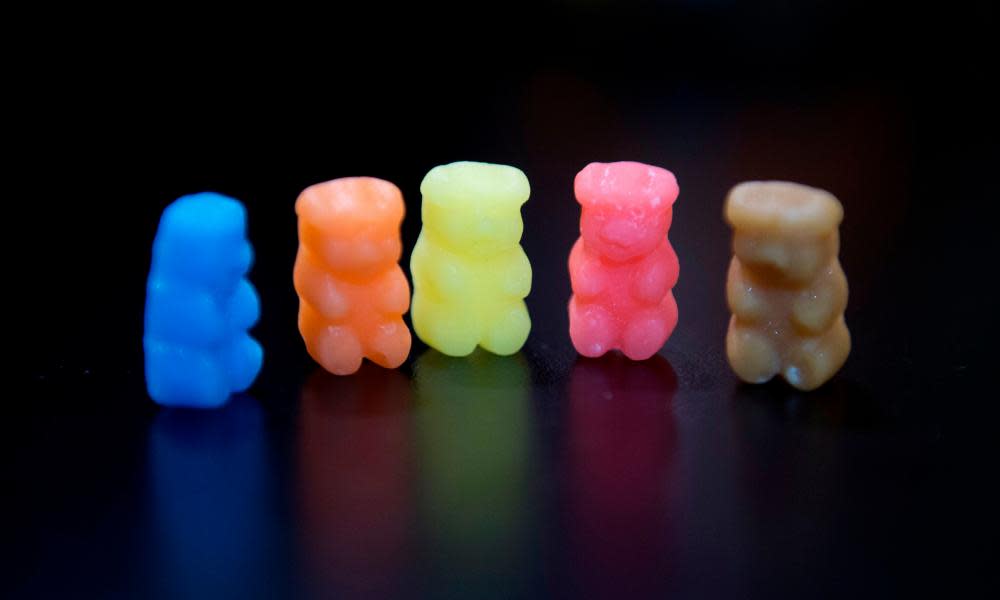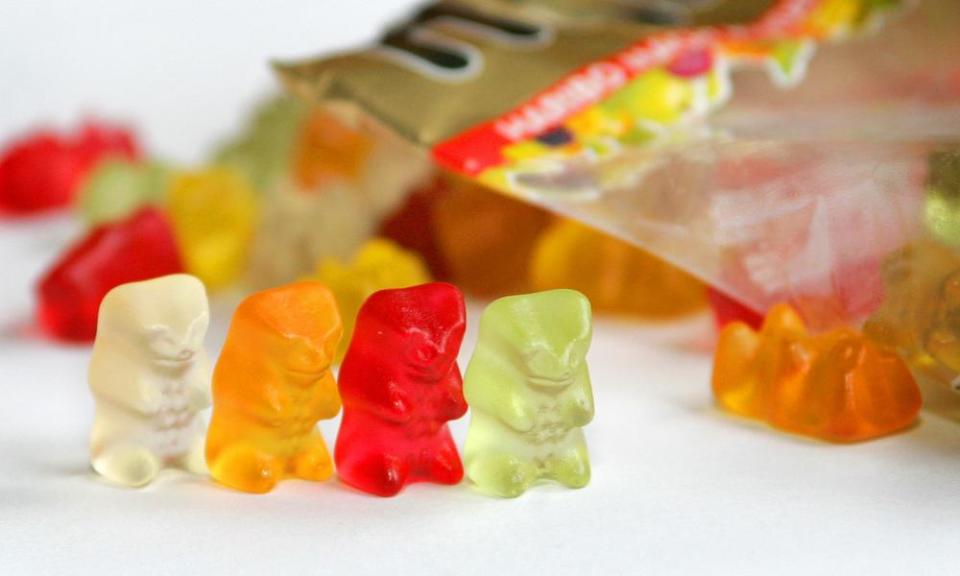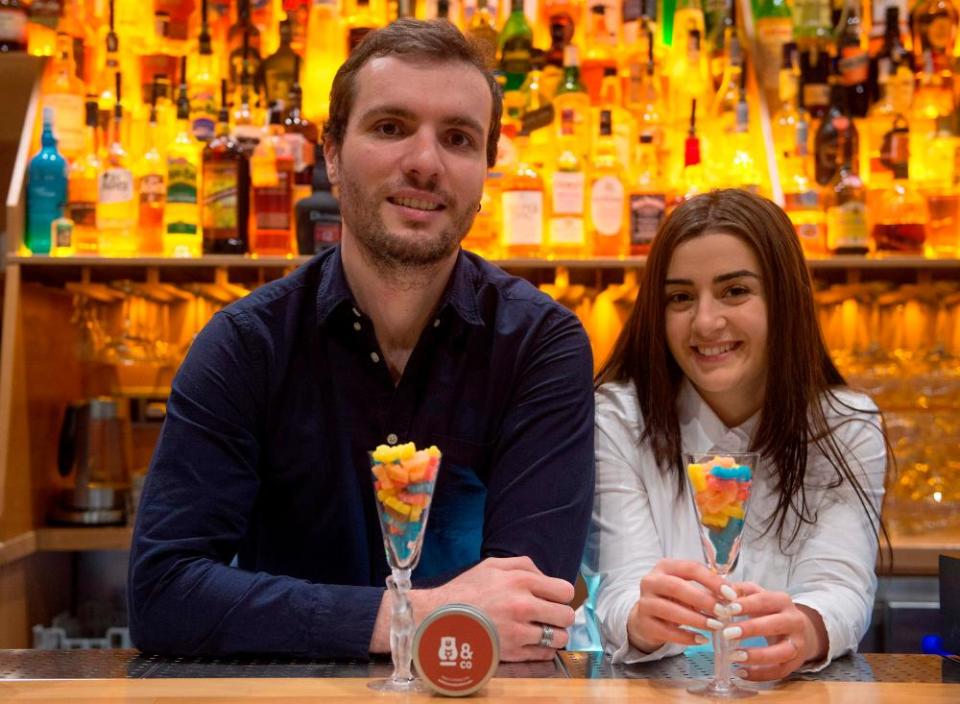'Why can't we use a bear?' Spanish startup shocked by Haribo legal threat

Small, sweet bears with the capacity to inflict a very sore head have triggered an intellectual property dispute involving a multinational confectioner, a trio of enterprising Spanish students and a shot or two of alcohol.
A couple of years ago, three friends studying in the Basque country experienced an epiphany: what if they combined their childhood love of sweets with their adult taste for alcohol? And what if the delivery system were a small, chewy bear?
However, their company, Ositos & co (Little Beas & co), had been selling the alcoholic sweets in bars and online for barely three months when they received a long cease-and-desist letter in January from the confectionary multinational Haribo.

The German firm had become aware of the ursine sweets and argued they were so similar to its gummy bears range as to infringe the trademark. The similarity, the letter went on, “cannot be explained or justified by a mere chance”.
It demanded that Ositos & co stop manufacturing and selling its boozy bears immediately and transfer the management and ownership of its domain name ositoscolalcohol.com (littlebearswithtalcohol.com) to Haribo.
Ander Méndez, the chief executive of Osito & co’s CEO, remains shocked and puzzled.
“We’re all a bit scared by this to be honest,” he says. “I’m only 24 and have only just finished university. Everything that’s happening to us now is the kind of thing you see in films; you never think it’s going to happen to you.”
The business, which Méndez founded last year with his friends Tamar Gigolashvili and Julen Justa, was starting to take off as customers discovered a taste for its range, which includes gin and strawberry, whisky and cola, rum and pineapple and tequila and lemon. Each bear contains 15% alcohol: seven or eight are equivalent to a beer or glass of wine.

“People are pretty surprised the first time they try them: they really taste like sweets to begin with and have the same texture, but as you chew, you feel the alcohol coming out and get a warm hit in your throat,” says Méndez. “But it’s very sweet and pleasant.”
He says he and his colleagues cannot understand the possible confusion with Haribo’s products: not only are Osito & co’s bears bigger and a different shape, they are also sold only online or in places where alcohol is served and are clearly marked as products for people aged 18 or older.
“The big debate is who does the bear shape belong to? They’re saying we can’t use the bear shape but we don’t get that. A bear is an animal that lives in the woods. Why can’t we use it for our sweets?” asks Méndez.
Haribo says it is only using “the standard legal procedure” to protect its registered trademarks and has no intention of entering the alcoholic sweet market, a spokeswoman adding: “Haribo has requested the transfer of the internet domain of Ositos & Co to protect and defend its intellectual property rights and its image.”
Méndez and his friends are weighing up their options but know they do not have the money to enter a protracted legal fight with a multinational.
In the meantime, they plan to carry on selling their products in Spain – and to their customers in France and the UK – to show that their bears will not be cowed.
“There could be more cases like ourselves happening elsewhere, where young people are being held back because they don’t have the resources to fight,” says Méndez.
“Maybe if we fight it, it could help others in the same situation. We’ve always been about fun and partying and we never thought we’d end up in a legal battle. What’s going on here is absolutely surreal: imagine you’re 22 or 23 and just out of university and a multinational starts threatening you and trying to destroy two years of work. It’s a nightmare.”

 Yahoo News
Yahoo News 
